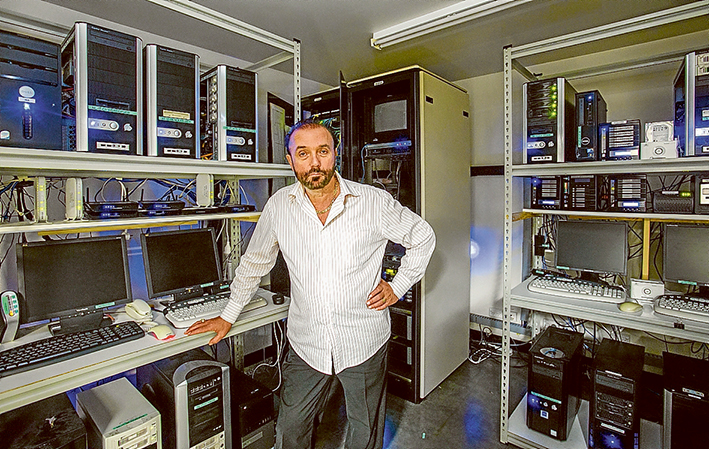
KINGSTON companies are at a competitive disadvantage and are losing money due to slow internet speeds according to a new survey commissioned by Kingston, Frankston and Dandenong councils.
North Melbourne-based research firm Geografia surveyed 322 businesses across the south east region and found delays in rolling out the national broadband network (NBN) cost the region $8.4 million per year.
Geografia also estimated more than 1000 jobs could be created if businesses are connected to world-class high-speed internet services.
The Need for High Speed Broadband in SE Melbourne’s Industrial Precincts report calls on the federal government to make business connections to the NBN a priority.
The report stated: “There are companies in SE Melbourne who are at the forefront of innovation in their respective industries. However, they are currently constrained by the speed and capacity of the telecommunications infrastructure and the outdated exchanges. The current NBN roll out has focused on connection to residential areas rather than business premises”.
Businesses at Braeside’s Woodlands Industrial Estate have struggled with slow internet speeds for years and are frustrated about the unreliability of connections at the business park.
Nulab is a professional photography laboratory providing print products to corporate clients in Australia and New Zealand.
Founder and executive director Michael Warshall said the failure to hook Nulab’s premises up to faster broadband is “putting us out of business”.
Professional photographers and companies send picture files online to Nulab for processing and printing.
“We’re a digital printer so 99 per cent of our work arrives to us electronically,” Mr Warshall said.
“Over the last five years the files are getting bigger and bigger.”
He said it “can take hours” to receive large files online with clients expecting a next-day turnaround for the delivery of printed brochures and photographs.
“We’re just 5 kilometres from the Mordialloc exchange, we’re running ten ADSL2 lines but it’s as slow as a snail so we’re becoming non-competitive”.
Nulab built its 50,000 sq ft offices in Braeside 14 years ago and employs 30 staff. Mr Warshall said the company moved from Prahran since most employees lived on the south side of Melbourne.
At the time the internet was in its infancy but the need for speed has become crucial over the past five years or so.
“[The NBN] would make us more competitive. Some customers think orders takes too long … so we lose orders.
Mr Warshall said the federal government should make NBN connections to business a priority.
“It seems like they’re going to bypass this area and go straight to the consumers and that’s a problem for us.”
Kingston mayor Cr Geoff Gledhill said council is lobbying both sides of politics at federal and state level to push the case for faster broadband services to be urgently provided to Kingston businesses.
“As a council we know it [the NBN] is expensive and you don’t just snap your fingers and it appears … but we want it to go into these business areas because it drives employment and productivity among those businesses.”
Cr Gledhill said businesses “talk about moving away” from Kingston such is the cost of slow internet speeds.
“We need jobs 20 to 30 minutes from where people live.”
The mayor said it is not a good look for overseas businesses “to experience incredibly slow data speeds” when sending information and files to Australian businesses.
“They go ‘hang on, if that’s how that part of their business works how else are they doing things?’”
The roll out of the $41 billion NBN has been hindered by political bickering and on the ground contract delays.
Roll out targets were not met when the federal Labor government was in power and the federal Coalition government controversially scrapped Labor’s initial plan to have all premises connected at faster fibre to the premises (FTTP) speeds.
The Coalition opted for fibre to the node (FTTN) connections, using hubs on every street rather than direct fibre connections to every home and business, which are quicker to install but deliver slower internet speeds than the FTTP option.
The Geografia report notes slower FTTN connections may not be sufficient for some businesses.
“If this [FTTN] policy is to persist, roll out models successfully employed in the US and UK may be used to orchestrate the upgrade of FTTN to FTTP,” the report stated.
